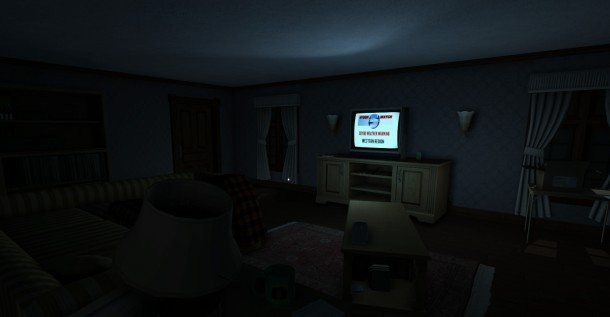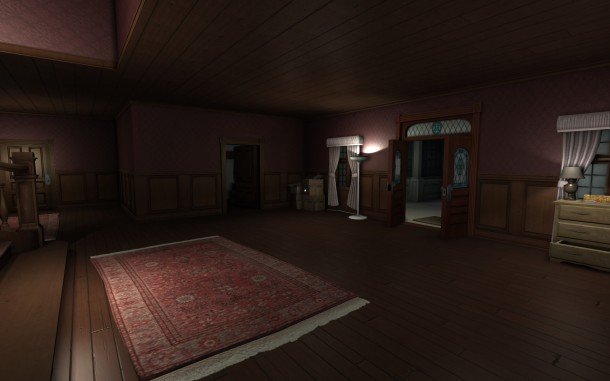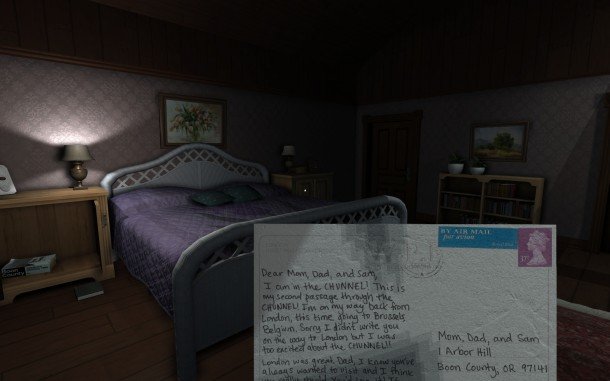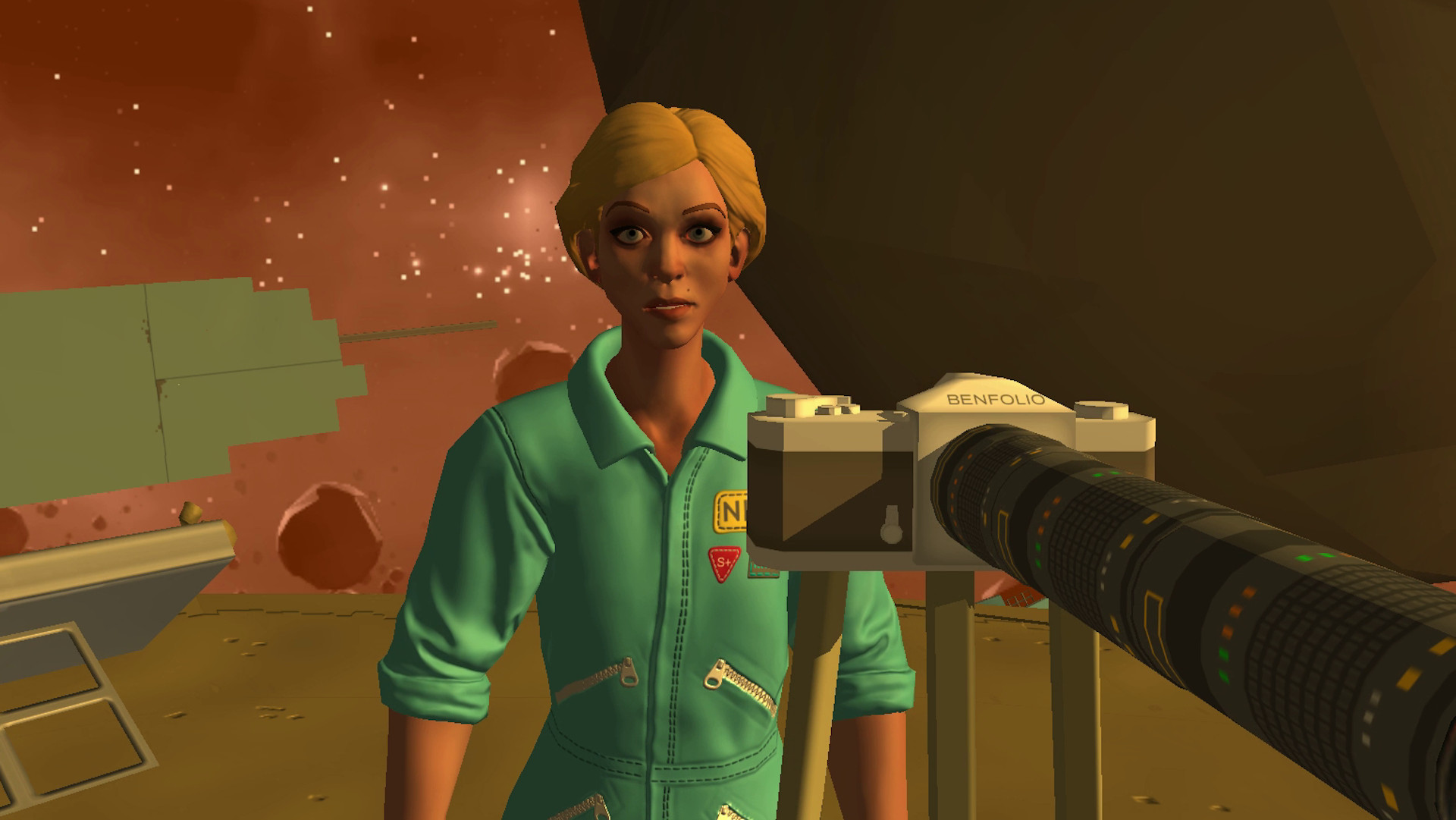Gone Home preview

Gone Home is described as a non-combat exploration game in a non-fantastical setting, which is not the sort of language you'd have to use in classifying a book. In games, combat and fantasy are so dominant that their absence is a quirk. But as we've been shunting sawblades into alien zombies and shooting weaponised bees from our rupturing flesh, the worlds we've been doing it in have become rich, interesting places with stories of their own.
When Steve Gaynor, Karla Zimonja and Johnnemann Nordhagen were building the Minerva's Den DLC for BioShock 2, they enjoyed working as a small team to tell a story through environmental details. So earlier this year, they left to form the Fullbright Company and make a game entirely about that.
Gone Home starts as you arrive back at your family home after a year abroad, only to find it conspicuously empty. It's a large, gloomy mansion on a dark and stormy night, so you're always half-expecting something to leap out at you. Even when you remind yourself it's not that kind of game, the edge it adds to the already ominous atmosphere is exactly the kind of irrational tension you feel exploring an empty house in real life.

After a few minutes of not being stabbed or shot, though, the details of the place you're in expand to fill your attention. You investigate it like a detective, deducing what's happened in the year you've been away. But while the atmosphere is spooky, most of what you discover is not. The notes, letters, diaries and visual clues that litter every room bring a whole family of characters to life.
Your teenage sister's story in particular is warm, funny and disarmingly tender - a smart girl on the cusp of discovering the mind-blowing scope of what the world has to offer her. The traces of her life are fleshed out with extraordinary richness, and bursting with clever, sweet, funny touches. Sam's the kind of girl to turn a homework assignment about the reproductive system into a World War II spy romance, and Gone Home is the kind of game to leave that entire three-page essay lying around for you to read.

If that's more detail than you want, it's easily skipped. Your progress through the mansion is a question of unlocking particular doors, and while the way forward is never signposted, it's obvious whether the clue you're looking at is relevant. The answer to getting into the library isn't going to be buried in Janice's forestry commission reports.
If you do read Janice's forestry commission reports, though, you might notice the scores she's given a colleague on their appraisal. You might recognise that name from another letter, and learn something interesting about her life that's never explicitly stated. The meat of the story is often between the lines, or in the connections between the clues you find. This half-written review of a stereo system isn't interesting, but the fact that Terry was writing it has a significance that's unveiled through other clues.
The biggest gaming news, reviews and hardware deals
Keep up to date with the most important stories and the best deals, as picked by the PC Gamer team.
That's why Gone Home is a game and not a book. It can sketch a depth to these lives that would derail a linear narrative, and let you delve into it if and when your interest drives you.
It's due next year - keep an eye on it here .

